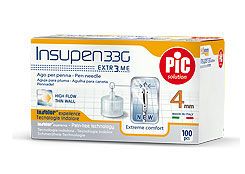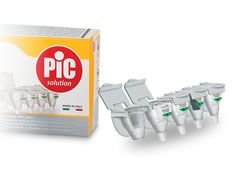
The future of diabetes: an artificial pancreas and oral insulin
The latest advancements in diabetes treatment, from an artificial pancreas to insulin pills, could change the quality of life of people who have it in just a few years. These are new devices and drugs that are the result of multidisciplinary studies involving technology, biomedicine and mathematics.
Cutting edge technology is coming to the rescue of diabetes too, and specifically of the pancreas. Scientific research into diabetes has made giant steps forward in recent years and conditions involving the pancreas may be dealt with more easily in the future. The design of an artificial pancreas that's capable of releasing insulin independently, as well as insulin in pill-form could change the lives of people with diabetes forever, thanks to a combination of technology, biomedicine and mathematics.
An artificial pancreas for controlling blood sugar
Nowadays, scientists can reproduce, even if only in an experimental form, almost all the work the pancreas does thanks to an artificial organ that's able to control blood glucose and start the release of insulin when necessary. It's an artificial pancreas, a living simulator in 3 parts: a sensor for continuously monitoring blood glucose, with software that controls levels loaded onto a PC that simulates the function of the beta cells and activates, if necessary, a device for diffusing the hormone that then gets released into the body of the person with diabetes.
One of the limitations of the artificial pancreas: a PC by the bed
In the past, during various experiments with the artificial pancreas, the software for controlling blood sugar levels was loaded onto a portable computer at the foot of the patient's bed. It's cumbersome because of its size, making it unlikely that the artificial pancreas will be appropriate technology for the fast pace of modern life.
Having the intelligence of a pancreas on a smartphone
Now, thanks to the collaboration of experts in other fields, a prototype of an artificial pancreas has been constructed that performs identically to a human one in terms of measuring blood sugar, controlled by software on a more practical device the size of a mobile phone.
Insulin in pill form to help the pancreas
If the pancreas doesn't produce enough insulin, it may be that by 2020 a pill will do the job. Attempts to create an insulin pill for diabetes date back to the 1930s, but it has yet to be created because of a seemingly insurmountable conflict between the insulin molecules in the pill with digestive enzymes. In other words, the objective of administering insulin orally has to deal with the fact that digestive enzymes tend to destroy the molecules instead of leaving them to act on the blood.









